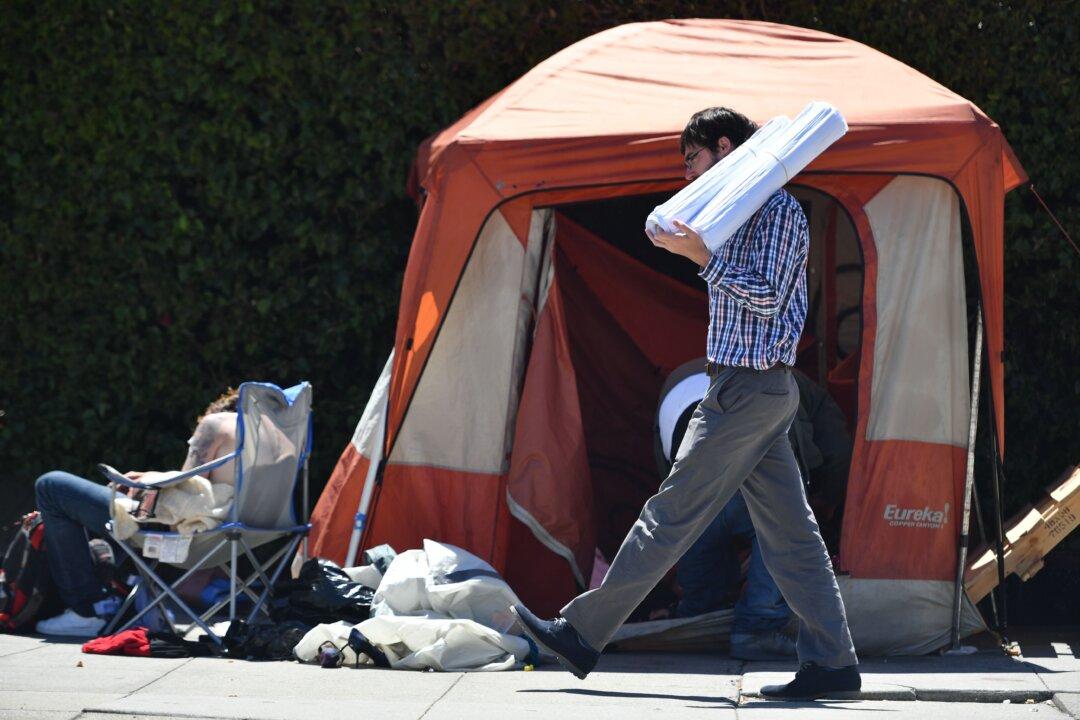The Environmental Protection Agency (EPA) will issue a violation notice within a week to San Francisco due to the city’s homelessness crisis, President Donald Trump said on Sept. 18.
“It’s a terrible situation. That’s in Los Angeles and in San Francisco,” the president said aboard Air Force One returning from a visit to California. “And we’re going to be giving San Francisco—they’re in total violation—we’re going to be giving them a notice very soon.”





